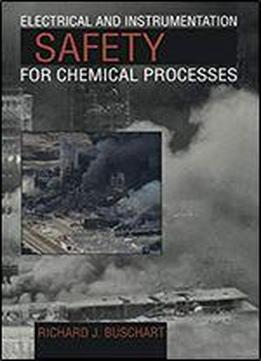
Electrical And Instrumentation Safety For Chemical Processes
by Richard J. Buschart /
1992 / English / PDF
6.9 MB Download
This text is about electrical and instrumentation safety for chemical proc esses. It covers a wide area of electrical and electronic phenomena and how they have and can significantly affect the safety of chemical processes. The importance of the subject is well known to anyone involved in the operation of chemical processes. Lightning strikes can explode storage tanks, shut down electrical power systems, and shut down or damage computer and instrument systems. Static electricity can ignite flammable materials and damage sensitive elec tronic process control equipment. Electrical power system failures or inter ruptions can produce unsafe process conditions. Chemical processes use flammable and combustible vapors, gases, or dusts that can be exploded by electrical equipment and wiring. Even low-energy equipment like flashlights can ignite a flammable vapor. Interlock and equipment protection systems can cause safety problems. How important is electrical and process control safety? A survey on "How Safe is Your Plant?", in the April 1988 issue of Chemical Engineer ing magazine, provided some answers. Among the results of this survey of chemical processes, it was found that over 800 respondents believed instru mentation and controls, shutdown systems, equipment interlocks, and other protection systems to be the least safe aspect of chemical industries. The survey also indicated that complying with OSHA and other regula tions, process control software security, inspections, audits, and safety training are important safety issues.











